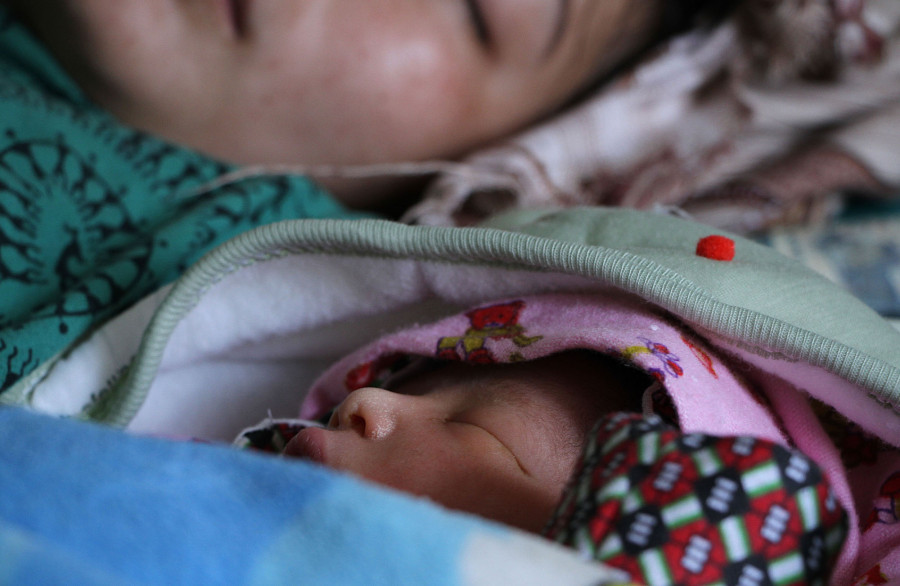Health
More Nepalis are delivering babies at home due to fear of Covid-19
Health officials are worried that this might increase deaths among mothers and their newborns.
Arjun Poudel
More Nepalis are delivering their babies at home due to the fear of getting infected with Covid-19 and unavailability of public transport due to the lockdown, officials said.
As the number of coronavirus cases surges across the country, expecting mothers are facing hurdles to visit their doctors regularly during pregnancy, and this has resulted in deaths of mothers as well as newborns, say doctors. While the number of women delivering babies in hospitals and clinics has gone down by 40 percent compared to the pre-lockdown days, at least 39 women and 291 babies have died due to birth complications in the last 80 days of the lockdown, according to the Safe Motherhood Unit under the Department of Health Services
"Due to the fear of getting infected with the virus, women are avoiding institutional delivery and antenatal visits these days,” said Dr Punya Poudel, chief of the unit. "Delays in reaching health facilities and antenatal visits to the doctor due to the unavailability of public transportation are also reasons why mothers and their children are dying,"he said.
A majority of the 39 maternal deaths recorded in the first 80 days of the lockdown took place at hospitals or clinics. Poudel, said that the numbers mean that family members are taking women in labour pain to health centres only when the pain becomes unbearable after they fail to deliver the baby at home.
In addition to the unavailability of public transport, numerous health facilities have also stopped providing services due to fears of Covid-19 transmission.
"Due to the rapid surge in home deliveries, more women and newborns are dying," said Poudel.
Nepal has already missed its 2020 target to reduce maternal mortality to 125 per 100,000 live births from the current 239 per 100,000 live births. Meeting the target looks more difficult with institutional delivery rates, already low at around 59 percent, declining further due to Covid-19 epidemic.
The government, meanwhile, has done very little to facilitate institutional deliveries during the lockdown. It has now started providing misoprostol tablets to all pregnant women throughout the country to prevent maternal deaths from postpartum hemorrhage, the leading cause of death for new mothers in the country.
Earlier the Ministry of Health and Population used to distribute misoprostol only in remote districts, where maternal deaths were high and it took hours to reach health facilities
Om Khanal, an official at the Family Health Division, said that three tablets of misoprostol will be administered to all pregnant women during their eighth month antenatal visit. “If a woman misses antenatal check-up, female community health volunteers will visit them and provide them with the life saving medicine.”
"We have already started training health workers on the use of misoprostol and its importance in saving lives from hemorrhage," said Khanal."We hope that easy access to misoprostol will help to reduce maternal deaths."
Female community health volunteers will also provide chlorhexidine gel along with misoprostol to be applied in the umbilical stump of the newborn babies to prevent infections.




 19.12°C Kathmandu
19.12°C Kathmandu















